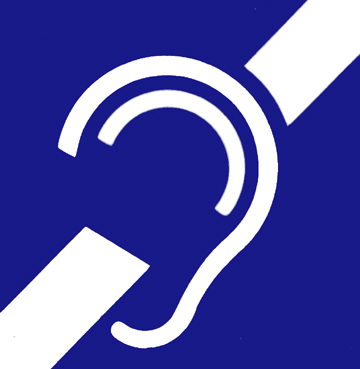
International Symbol for Deafness
Around the world, dedicated research teams and tech experts working for Startups are striving to address hearing loss in a wide variety of ways. A few of the most prominent Startups that are making a real difference in the Deaf and hearing-impaired space are covered in this news piece.
This New York Startup offers a direct-to-consumer selling model that offers “sleek hearing aid models and collaborations with iconic influencers,” to quote their website. As they market directly to people, they need to be able to help their customers identify their exact level of hearing loss. Audicus recently launched an online hearing assessment test that allows people to check their hearing online, in just a few minutes, at no cost. It’s a terrific first step for anyone concerned about their hearing.
Ava is pioneering a whole new level of accessibility for Deaf or hearing impaired people, as recently covered by Media Access Australia’s news piece on Ava. When at a family dinner or small gathering, this helpful app can be downloaded by everyone and the voice-recognition software will then translate the conversation into a series of text-message-like notes, keeping any hearing impaired group member in the loop and allowing a real-time response.
Frequency Therapeutics hopes to stimulate growth of relevant cells in order to jump-start healthy tissue development that can help people hear. This biotech Startup has the goal of developing drugs that are able to remedy hearing loss and David Lucchino, the CEO, gave some very interesting insights on this in an article on some of the issues faced by Frequency Therapautics and their mission for MedCity News in early 2017.
“It’s all about noise pollution,” says Mr Lucchino. “There was a terrific research study on hearing concentrating on people who were born and spent their entire lives on Easter Island, compared to people who left. The people who stayed had great hearing well into their 60s. The people exposed to noise pollution had the same kinds of hearing loss we see every day.”
If you’re hearing-impaired, you know what it’s like to attend an event — business meeting, university lecture, or in a social setting— and not have a clue what anyone’s saying. This Korean Startup offers a voice-operated typing and transmission service that can be used to provide real-time captioning for a hearing impaired person. Sovoro has seven languages at the moment including English, Korean and Spanish, but is aiming to support 80 languages shortly, thanks to its reliance on Google’s engine to take its notes.
Top of page

